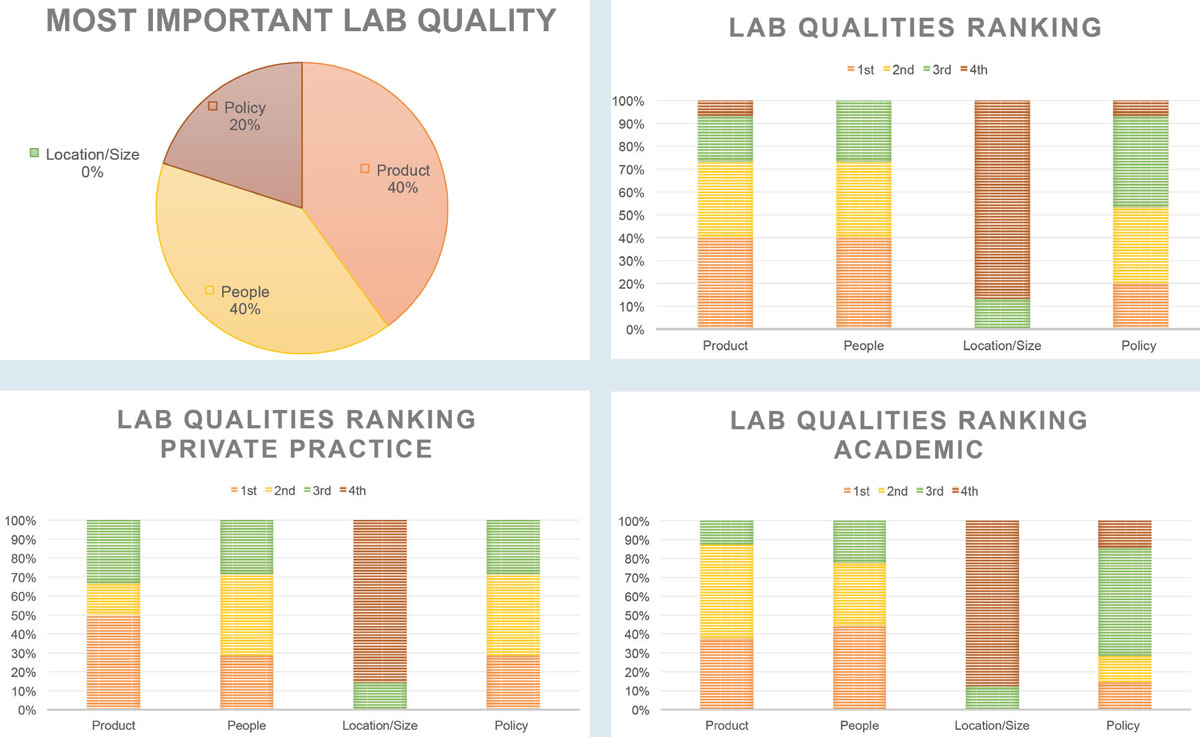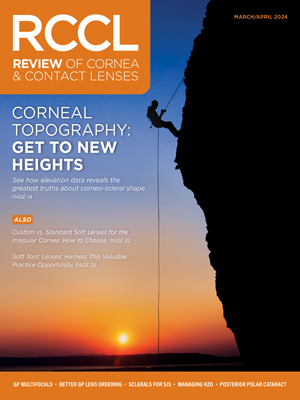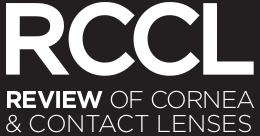Technology and resources for specialty contact lenses are rapidly expanding, and practitioners are now surrounded by a variety of evolving lens labs. The two of us got together to discuss how we evaluate labs and how our relationships have evolved as we have become more experienced.
The key questions in this discussion revolve around how to choose one lab vs. another and how to determine if a lab is good for them. It became evident that four key lab qualities helped answer those questions. The qualities that we focus on here include the product(s) offered, the people we interact with, the location/size and the lab policies. Our conversation further delves into the intricacies of these four qualities.
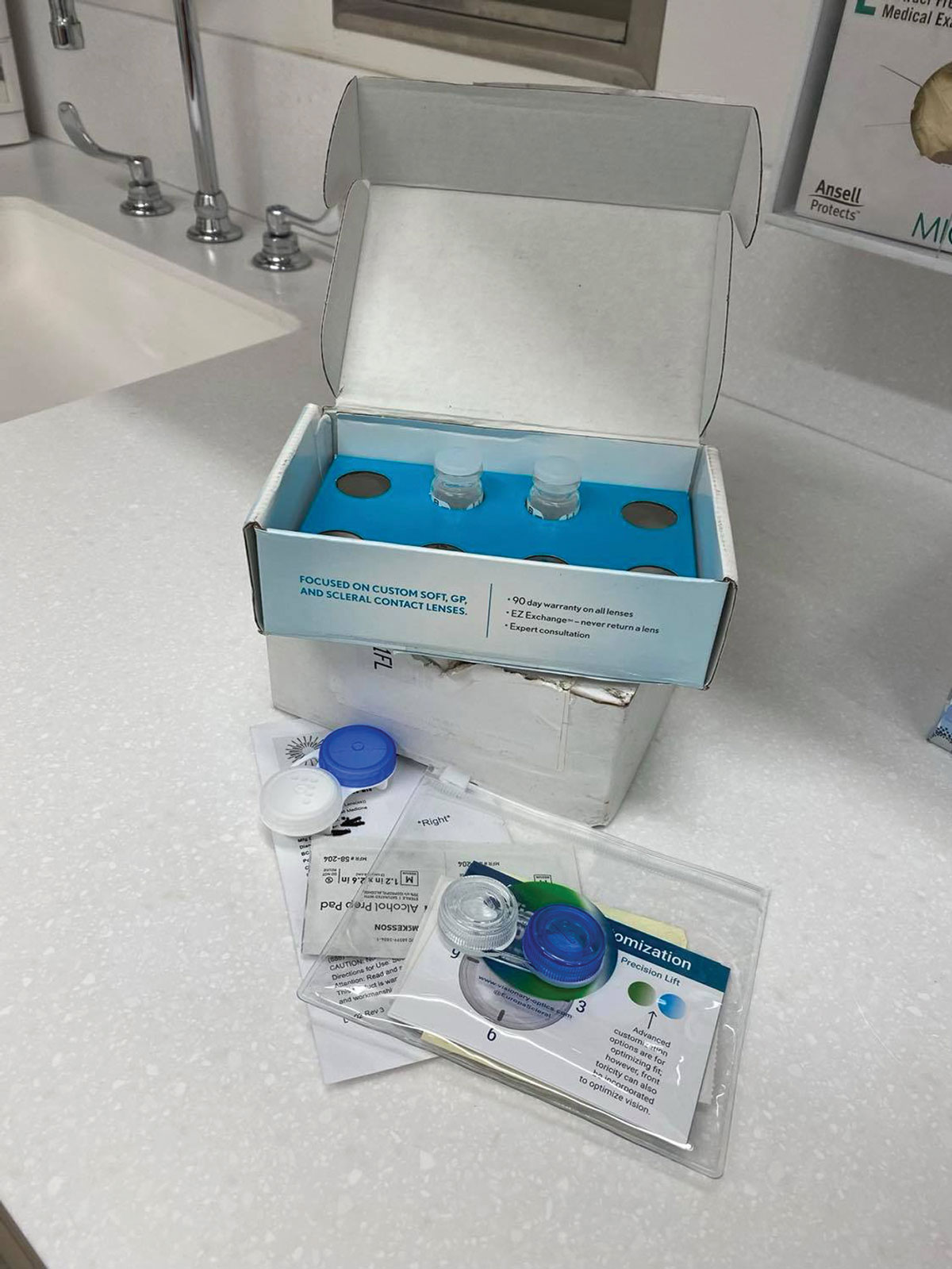 |
| Ensure that your labs deliver your orders in a timely fashion, so that they are ready for dispensing. Click image to enlarge. |
Product
Is it more important for a lab to offer variety or specificity?
Dr. Sherman: Many labs offer a variety of products from soft lenses to sclerals. Sometimes, these larger companies act as distributors and provide various products from numerous brands. Whereas other labs solely focus on a specific product and possibly are well-known in that niche. Each option is great, and choosing the best for you often depends on the modalities offered and your practice’s patient population.
A lab that offers a variety of products can be a good resource for a practice that wants to provide specialty contact lens services but is just starting out or sees a lower volume of patients. Ordering from this lab is a centralized way to access different types of contacts from a single location. In addition, it can be easier for backend payment purposes.
However, a lab that specializes in one product can also be quite valuable. For example, a lab that only makes scleral lenses may provide more unique customization and consultation options that larger labs may not offer. The extra focus on one product may make the lab the top in the industry.
For example, both of us work in a large medical center and co-manage a lot of anterior segment pathology. So having access to the best products and customization to treat and manage complex cases is crucial. This will reduce lens remakes and patient satisfaction. So for me, the expertise of labs with specificity is more sought after.
Does the lab need to offer the latest technologies?
Dr. Patel: Advanced technologies became increasingly important to me when I started to expand my specialty lens service. The days of seeing straightforward keratoconus patients had passed, and I needed ways to accommodate more challenging cases. I quickly realized that if I had a patient in a lens that couldn’t be modified, I would have to start the process from scratch with a different lens.
While I don’t use advanced technologies such as microvaults, decentered optics, channels or multifocals on all my patients, working with a lab that provides these options when I need them has become crucial to my practice. I can troubleshoot areas of concern quicker, and I can apply them to my initial fits more often. These customization options have elevated my specialty practice and set me apart from practitioners who do not feel comfortable using these advanced technologies.
People
Is the lab’s team important?
Dr. Patel: A lab is made up of numerous people, from the team members who the lathe to the customer service staff on the phone. The longer I work with a lab, the more I get to know many of them. Building a relationship with a lab can go a long way towards maintaining happy patients, who deserve the best available. This may occur over the phone with customer service or by chatting with a sales representative at a conference exhibit hall. We have all had fittings that do not go as expected or have ordered lenses with the wrong fit or prescription changes. A reassuring call with a friendly, understanding customer service member can resolve these worries and ease any added stress.
A lab that emphasizes their commitment to working along with practices can result in a long relationship, trust and loyalty.
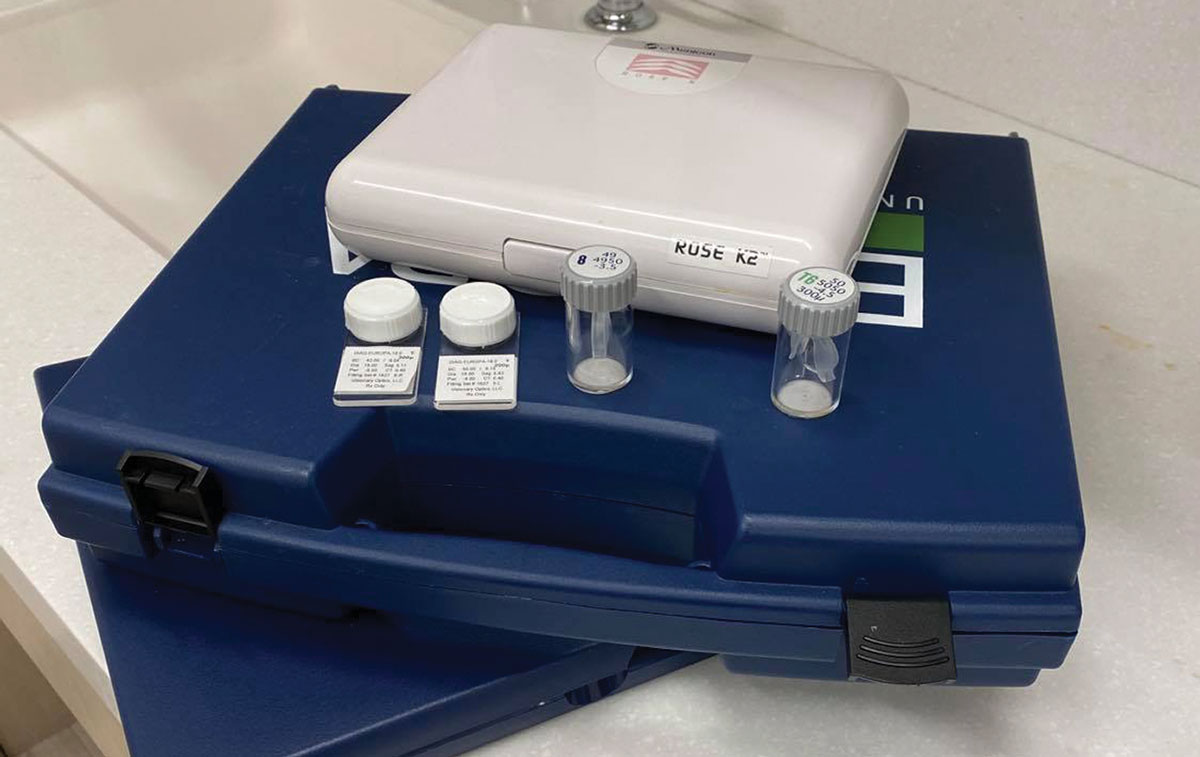 |
| A lab that offers a variety of products can be a good resource for a practice that wants to provide specialty contact lens services. Click image to enlarge. |
How important is the consultant-practitioner relationship?
Dr. Sherman: Your relationship with your lab should be a partnership. While you are loyal to them and bring them business, they also need to know that you will need to lean on them from time to time.
Time is everything. My practice is part of a large academic hospital center in the middle of New York City, where efficiency and effectiveness are crucial. I have learned that I need one consultant from each lab that I trust thoroughly, and I need the quickest and easiest way to reach them.
At the beginning of my career, talking to a consultant on the telephone gave me the support I needed; however, I would grow frustrated if they kept me on hold for long periods of time. As I became more knowledgeable about each specific lens, I found I didn’t need the consultant to the same degree. I adapted my communication to only sending a quick email to someone I trusted who was fast and efficient.
More recently, some labs have their own web portal where you can see graphs and images of lens manipulations. This is a great tool for a more seasoned clinician. First, I feel more in control and, second, I can show students and residents exactly what I am thinking. I have also often used these visuals in grand round presentations to teach my ophthalmology colleagues more about custom lens fittings.
In the end, my relationship with each lab consultant is different, but the theme is the same: I want a consultant or lab representative with a wide depth of knowledge, the ability to think outside of the box and the availability to be easily reached. If I don’t find this right off the bat, I often will shift away from that lab.
Location and Size
Where is the lab delivering goods from?
Dr. Sherman: Even though we are healthcare professionals, if you fit lenses, you still deal with customer service. We all have patients who wants their lens the same day they come in for their first visit, or they are moving to another country tomorrow and immediately need a new lens.
Whether the lab is in the United States or not, in your current state or across the country, matters in terms of shipping time. For my practice patient demographic, this is crucial to maintaining the patient. I frequently have patients come from around the world for a short period of time to see me and a few other specialists in the area. This constraint demands expedited shipping as well as quick and accurate delivery methods. If a lab consistently takes longer than promised, I will often reassess my relationship with them and try to find someone who makes a comparable product and can deliver in a timelier manner.
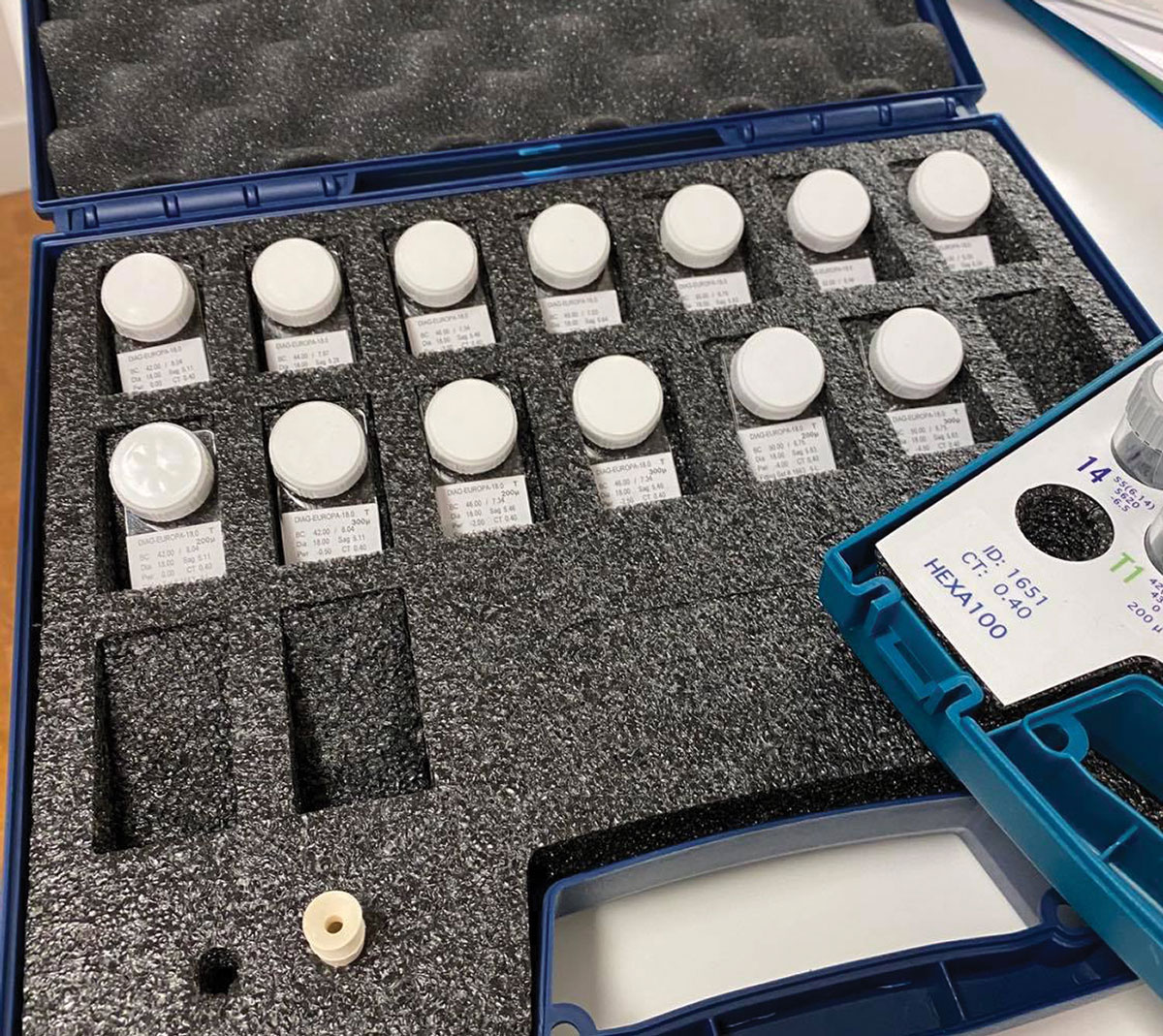 |
| A lab that only makes scleral lenses may provide more unique customization and consultation options that larger labs may not offer. Click image to enlarge. |
We all have had a patient who is fully dependent on their lenses call the practice saying they lost or broke a lens. How quickly we can achieve adequate patient satisfaction affects our patient’s general thoughts about our services and our practice.
Does lab size matter?
Dr. Patel: In recent years, we have seen small labs bought by larger companies who then integrate them into a family of products. This creates a one-stop shop for practitioners. This can be advantageous in numerous ways. It can streamline ordering a variety of lenses at once and also reduce costs such as shipping.
In addition, larger labs have greater outreach to practitioners. This may allow a practice to have access to products that may not have been otherwise accessible due to logistical reasons. Larger labs may also offer resources such as patient education material and marketing assistance.
In comparison, smaller labs provide their own unique experience. Practices that use smaller labs can become familiar with lab personnel and speak with the same consultant each day, compared with a call center with many customer service representatives at a large lab. The familiarity and understanding between the consultant and practitioner can reduce ordering time and lessen the chance for a remake. Once a larger company takes over, the consultation services may become combined with several products and the experience may differ.
Larger labs or distributors can offer your practice many products and services, but remember that small labs can provide unparalleled personalized knowledge and service.
Practice What You PreachChoosing a lab is subjective, with no exact formula. So the two of us thought it would be a good idea to gather various opinions of specialty contact lens practitioners from around the country. We asked them to rank the four lab qualities we devised (product, people, location/size and policy) in order of importance to them. We polled 15 colleagues with an almost even split between private practice (solo or group) and academic (optometry school or medical centers) modalities. The figures below show the distribution. Product and people were the two most important factors, and location/size the least. An interesting finding between private practices vs. academic practitioners was that private practitioners place slightly more importance on policies. Although this was not a scientific poll, the information shows that there is not just one specific factor that practitioners consider when working with a lab.
|
Policies
How’s the warranty and flexibility of the lab?
Dr. Sherman: I think of my contact lens lab warranties and return policies the same way as I think of any retailer: they must keep up with the market. When I was a new fitter, I relied heavily on being able to do multiple remakes, and, now as a more experienced practitioner, I know my patients are relieved to know we have the time to get the fit correct. I often send them away with their initial pair for a month before seeing them back, which then allows me to troubleshoot more long-term complications at the second visit.
Therefore, if a lab isn’t giving you the same or greater warranty time and flexibility as other labs, then you have to consider if they offer something that no one else has. Otherwise, it is time to move on.
In time, you will figure out how accommodating the lab is to your needs, whether it’s breaking a lens accidentally or missing the warranty by a day. This has been especially important during the current COVID-19 pandemic since many patients are reluctant to schedule a follow-up visit.
Lastly, a financial assistance program can be the icing on top of the cake. A lab with a good product that also assists you in helping others is smart business for you both. The extra benefit allows you to help those who might not ordinarily be able to be fit in any kind of special lens, and these cases make you more well-rounded as a practitioner.
What about billing?
Dr. Patel: Often, we think about the cost and the warranty policy, so billing might not initially come to mind. Billing and payment may be the least of a practitioner’s concern when fitting lenses but should be a crucial practice management consideration.
Depending on the practice’s structure, always check with your staff member who deals with invoices and payment. The way the lab structures and sends invoices may not be the ideal format and could provide challenges for the office payment staff. This can be more evident in larger practice settings with multiple providers and departments. The last thing a busy specialty lens practice wants to see is a hold on an account. Communication is essential between the practitioner, office payment staff and lab billing staff.
Choosing a lab is a personal decision, with right or wrong answer. Take a step back and prioritize what aspects are most important to you and your practice, then review your current lab relationships. Do they share the same values and goals as you? Do you feel that you are in a partnership with them, even if they are a large company? If the answer is yes, then you know you are in a strong place. If not, then it is time to reassess.
Lastly, always keep your eye on new opportunities when you see them at conferences, journals and CE sessions. Even if you are content and doing well, it is prudent to keep a pulse on where the industry is going.
Dr. Sherman is an assistant professor of optometric sciences (in ophthalmology) and the director of optometry at Columbia University Medical Center. She specializes in complex and medically necessary contact lens fittings and ocular disease. She is a fellow of the American Academy of Optometry.
Dr. Patel is currently a clinical instructor at Weill Cornell Medicine Ophthalmology in New York City, where his focus is anterior segment management and specialty contact lens fitting. He is a fellow of the American Academy of Optometry.
